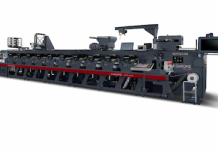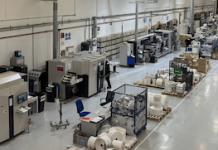John Tschohl, president and founder of the Service Quality Institute, writes that speed matters, and there are several reasons for that. We live in an age of technology, which has in many cases greatly reduced the time it takes us to accomplish a task. That brings with it the need for others — particularly companies we do business with — to dramatically reduce the time it takes them to accomplish the tasks that we require of them.
Speed is a critical element of customer service. Unfortunately, business owners and executives often overlook its importance as they plan their strategies to attract and retain customers and increase their sales. Too often they focus on catchy slogans and increased advertising instead of zeroing in on what really matters to their customers.
I see three internal roadblocks to using speed as a competitive edge. The first is the mindset of employees who procrastinate, whether they are serving internal or external customers. The second is that employees lack the empowerment necessary to respond to customer requests and complaints. In fact, even if they are empowered to make decisions, they often will not do so because they don’t want to run the risk of being reprimanded or fired. So, what do they do? They seek approval from their bosses for whatever steps they want to take. In the process, they delay action — and dismiss speed.
Policies and procedures also get in the way of providing speedy service. Most policies and procedures are nothing more than ‘speed bumps’. When employees are restricted in their attempts to quickly and efficiently deal with customers, those customers often will spend their money somewhere else.
Let me give you an example of speedy, empowered and excellent service. A friend had purchased a bathroom vanity top from a store, but never used it. Two years later, while shopping at that store, she noticed the store was still carrying that vanity top. She stopped at customer service, told the employee she had a vanity still in its original box, and she still had the receipt. She asked if she could return it and, without hesitation, the employee said she could. There was no need to bring the request to the manager or to check company policy. The employee handled the situation — and that store has a customer for life.
Your company’s operational hours also impact speed. If my drain is clogged or my car needs service, do I want to wait a week to have the problem solved? No, I want it done today. Too often, companies don’t set their hours with the customer in mind. I recently spoke in Moscow, Russia, a city that appreciates its citizens’ need for speedy service. In order to provide it, Moscow’s multi-functional centres are open from 8am to 8pm, seven days a week.
Speed has high value in the eyes of your customers. If you want to capitalise on that need, you must remove the obstacles that get in the way of serving with speed. You must stress speed to your employees and empower them to solve problems and make decisions that will drive your business. I do caution you, however, not to sacrifice quality in favour of speed; the two must go hand in hand in serving customers.
Put another way, if you want to attract and retain customers, speed will help you do so. The more quickly you serve them, the more quickly your sales will soar.
John Tschohl is a professional speaker, trainer, and consultant. He is the President and founder of Service Quality Institute with operations in over 40 countries. He is considered to be one of the foremost authorities on service strategy, success, empowerment and customer service.
JOHN TSCHOHL
www.johntschohl.com






















